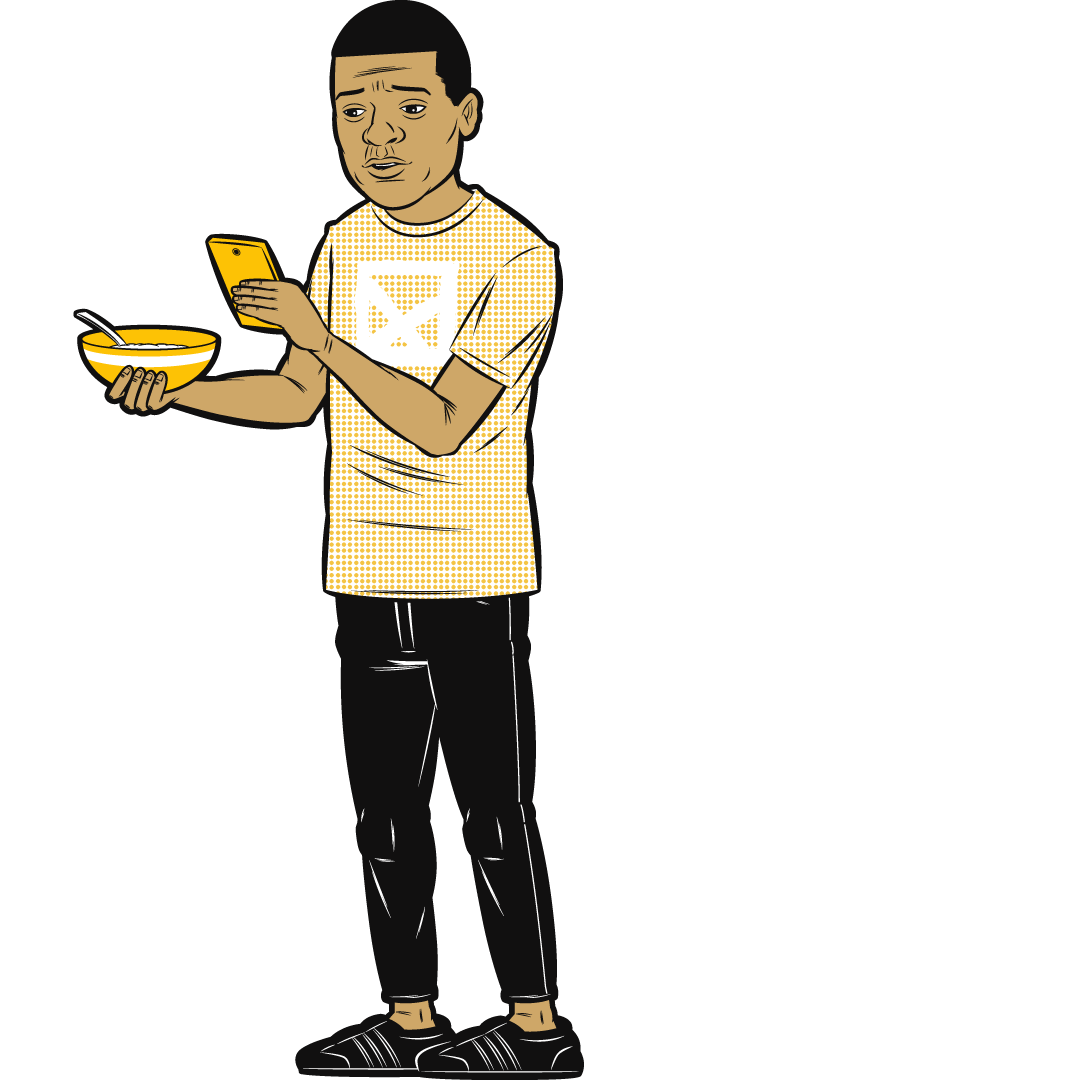
Da apoyo
Pasos sencillos para conversaciones importantes
A veces, los hombres no se sienten cómodos hablando de los retos de la vida, o piensan que si lo hacen estarán agobiando a sus amigos.
Si alguien que te importa parece estar pasando por un momento difícil, puede que no hable de ello aunque quiera. El primer paso para cuidar de ellos es tenderles la mano.
Más información
Cómo prepararte para una conversación difícil
No puedes arreglar los problemas de los demás, pero puedes estar a su lado. A veces, escuchar es lo más útil que puedes hacer. No empeorarás las cosas preguntando a alguien cómo le va. Ten en cuenta que siempre merece la pena prepararte antes de iniciar la conversación.
Comprueba tu estado de ánimo
¿Te encuentras en un buen estado de ánimo?
¿Tienes tiempo para escuchar?
Si no están preparados para hablar o no quieren hablar contigo, ¿te parece bien?
Si les preguntas cómo están, ¿estás preparado para que la respuesta sea "no muy bien"? Sé tú mismo. No hace falta que seas un consejero o un médico recetando soluciones: sé tú mismo.
Fijar una hora
Las buenas conversaciones pueden darse en cualquier sitio, asi que fija una hora para hacer una videollamada y charlar "cara a cara", aunque sea virtualmente.
A veces es más fácil iniciar una conversación por SMS o chat, y eso también está bien.
CONTACTA CON
ALEC
Cuatro pasos simples: usa ALEC para ayudarte a entablar una conversación con alguien que pueda tener dificultades.
Muchas gracias a R U ¿OK? por desarrollar el modelo ALEC.
ASK - PREGUNTA
Comienza preguntando cómo se siente esa persona. Vale la pena mencionar cualquier cambio que hayas notado en su comportamiento: ¿ha dejado de responder a los mensajes? ¿Suena diferente al teléfono?¿Se ha quedado callado en el chat grupal?Usa una pregunta como: “No pareces tú últimamente, ¿te encuentras bien?"
Confía en tu instinto. Recuerda, la gente suele decir "estoy bien" aunque no lo esté, así que no tengas miedo de preguntar de nuevo.
Puedes usar algo específico que hayas notado, como “solo es que no has respondido a mis mensajes, y eso no va mucho contigo".
LISTEN - ESCUCHA
Dale toda tu atención. Hazle saber que estás escuchando lo que está diciendo y que no le estás juzgando. No tienes que diagnosticar problemas ni ofrecer soluciones, pero hacerle preguntas le hará saber que estás escuchándole.Haz una pregunta como “Eso no puede ser fácil, ¿cuánto tiempo llevas sintiéndote así?"
ENCOURAGE ACTION - FOMENTA LA ACCIÓN
Ayúdale a centrarse en cosas simples que puedan mejorar cómo se siente. ¿Está durmiendo suficiente? ¿Está haciendo ejercicio y comiendo bien? Quizás hay algo que le haya ayudado en el pasado, así que vale la pena preguntar.Sugiérele que comparta cómo se siente con otras personas de confianza. Esto facilitará las cosas para ambos. Y si se ha sentido decaído durante más de dos semanas, sugiérele que hable con su médico.
CHECK IN - MANTENTE EN CONTACTO
Sigue vuestra conversación con una llamada o FaceTime. Esto ayuda a demostrar que te importa. Además, tendrás una idea de si se siente mejor.Muchas gracias a R U ¿OK? por desarrollar el modelo ALEC.



Movember Conversations gives you the confidence to have conversations with the men in your life who might be struggling.
Teléfono de la Esperanza
Teléfonos de ayuda 24h: 914 590 055 / 717 003 717
Un servicio de apoyo telefónico gratuito y anónimo a los que se encuentran en una situación de crisis emocional.
DESCUBRA MÁS
Alcohólicos Anónimos
Alcohólicos Anónimos es una comunidad de personas que comparten su mutua experiencia, fortaleza y esperanza para resolver su problema común y ayudar a otros a recuperarse del alcoholismo.
DESCUBRA MÁS
